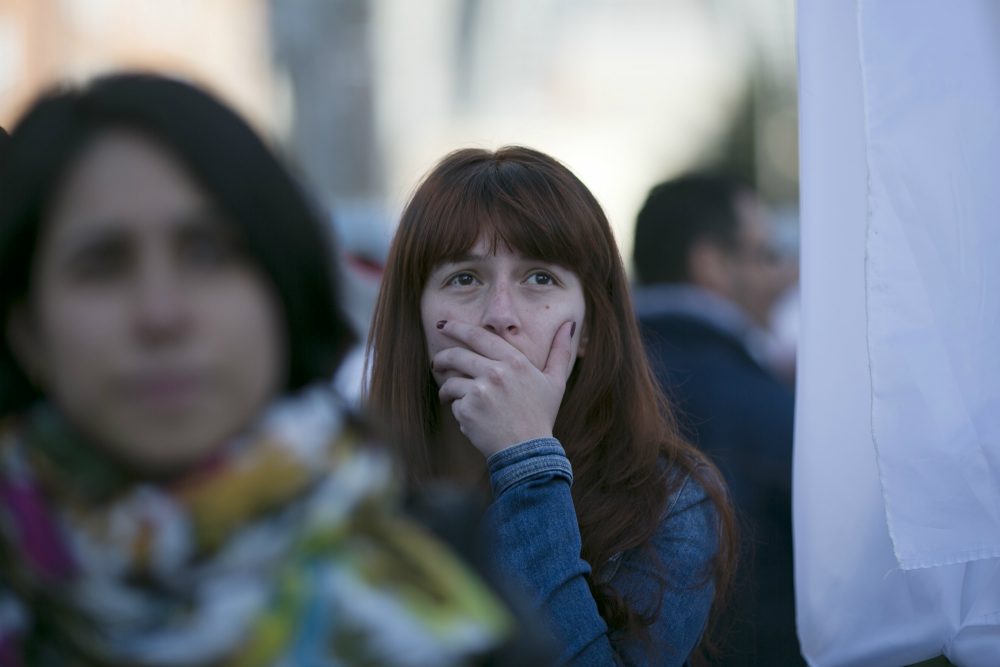Advertisement
In Colombia, Peace Awaits The Right Reconciliation

By half a percentage point, Colombian voters rejected an agreement on Sunday that would have ended their bloody 52-year civil war. Earlier in the day, it was predicted that the referendum had enough support to win by a landslide. Now, President Juan Manuel Santos must now decide what to do with the unthinkable after warning his people that failure would mean a “return to war.”
For those of us who hope that the peaceful path will be the obvious choice of all people who can freely choose, this outcome challenges the assumption that a settled and definitive peace is always possible. It is not, and certainly not always in one fell swoop, even at such a critical and decisive moment.
Peace negotiations between the Colombian government and the Marxist FARC rebels began in earnest in 2012. Over the subsequent four years, they succeeded in drawing the support of some of the region’s most influential nations. Signed in late August, the agreement was reached through difficult negotiations about the very roots of this particular conflict, but contained many of the elements common to successful peace agreements in our time, including provisions for truth and reconciliation, and guarantees for the re-integration of rebels into civil society.
...this outcome challenges the assumption that a settled and definitive peace is always possible.
By all accounts, portions of the agreement allowing for some FARC rebels to avoid criminal prosecution, and others to stand for public office were particularly painful for voters to accept during the lead-up to the election. While it is easy to claim that voters should desire peace above all else, it is also unreasonable to expect that those who have endured violence should be quick to grant political rights to rebel leaders with ease and grace. After all, many voters are also victims. They are the friends and relatives of the 220,000 people killed in the conflict as well as the five million refugees created by the fighting.
Political participation of the sort envisioned in the agreement represents the height of reconciliation. While reconciliation is a beautiful concept, it is also a profoundly aspirational one, often requiring formidable skill, luck, and timing to grasp and hold onto. It is also a relatively new concept, with mixed success following major conflicts the world over, from Sierra Leone to Myanmar.
In instances where it has worked, most prominently in South Africa and Northern Ireland, it has come slowly and painstakingly, many years after the formal ratification of peace. Ask anyone from these countries what continues to threaten peace and they will invariably mention the need for sustained dedication, by governments as much as individuals, to the cause of reconciliation.
While the successes of reconciliation have been limited, they occur in an era of astonishing successes in the causes of peace. Unprecedented agreements have been forged in the last quarter century, radically altering our view of what is possible. Yet the magnitude of the victories has also prepared us badly for how to view partial victories and, as such, how to deal with partial defeats. In this way, our views of the possibilities of peace are uncomfortably similar to our misguided perceptions of war here in the United States. For half a century we have found ourselves in quagmire after quagmire initiated under the false perception that we would be guaranteed the kind of total victory unique to World War II. In peace as in war, the temptation to expect such clear-cut outcomes creates perceptions that make it harder to fight for what is good when everything does not turn out right the first time.
...the great mistake would be for the stakeholders to presume that Sunday’s vote signifies an absolute rejection of all forms of peace.
In the days following this electoral defeat in Colombia, the great mistake would be for the stakeholders to presume that Sunday’s vote signifies an absolute rejection of all forms of peace. Peace lies in understanding that Colombian voters have simply said that this particular balance of peace and justice will not do.
For weary leaders who have come so far on all sides, this will be a great challenge, but in the hours following the vote, they quickly set a tone to do just that. It will be equally difficult for them to grapple with the forces in their ranks who seek the gratifications of renewed warfare, yet an agreement will come from their renewed commitment to negotiations. They have come far enough to make the few remaining concessions that will ensure that the pain of peace is tolerable enough for people on both sides to accept it, despite the uncertain road ahead. Absolute and outright peace may be a rare thing indeed, but even following this setback, lasting peace remains close at hand.
